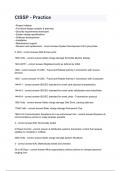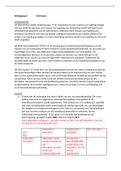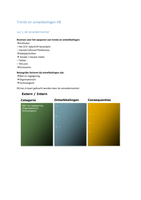Class notes
Work Psychology
- Course
- Institution
A clear comprehensive summary of all lectures. Lecture slides + additional information she explained in the videos. Includes quizzes from wooclap at the end of the practical sessions. (NL) A clear comprehensive summary of all courses. Lecture slides with plenty of extra information from the vi...
[Show more]






